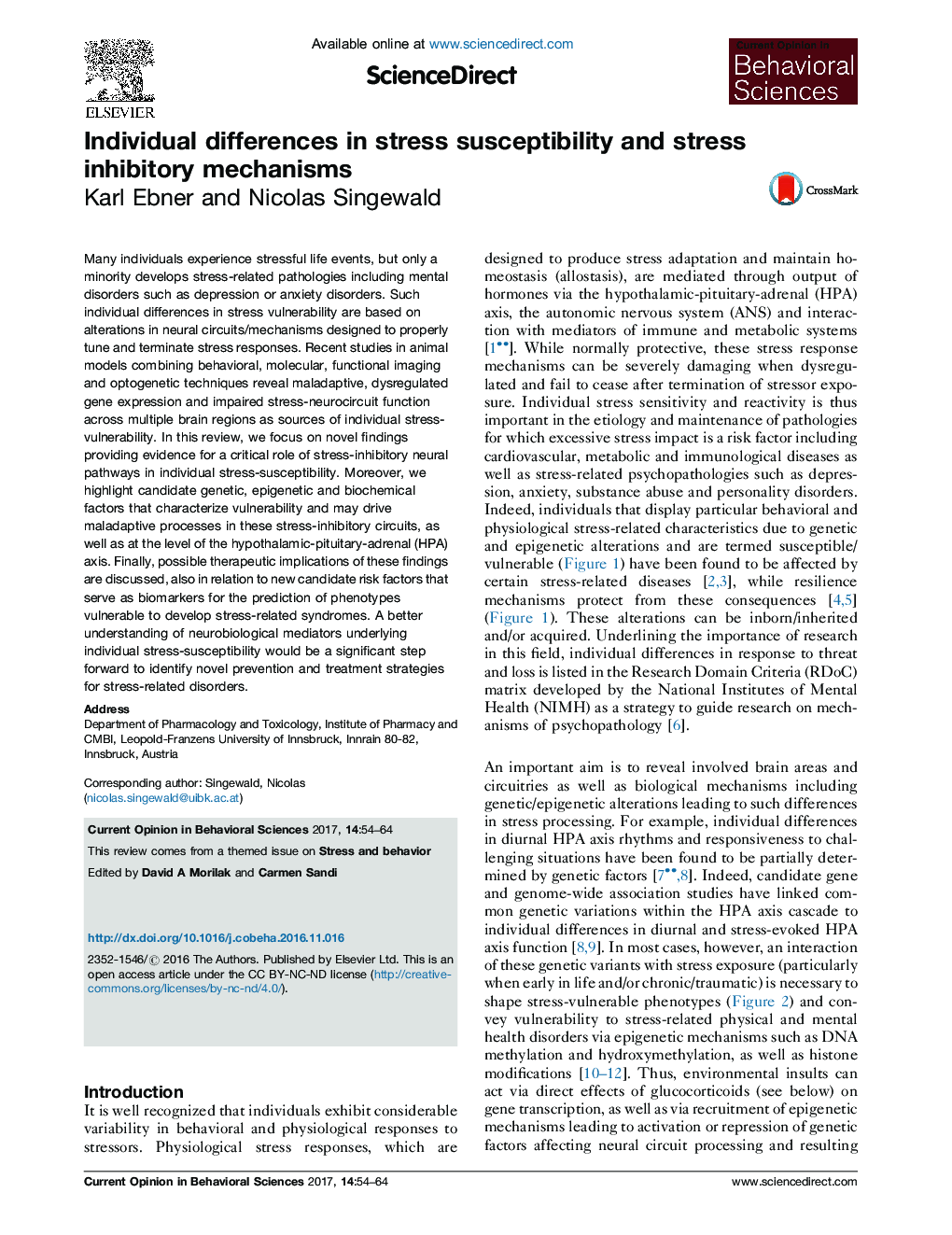| Article ID | Journal | Published Year | Pages | File Type |
|---|---|---|---|---|
| 5735908 | Current Opinion in Behavioral Sciences | 2017 | 11 Pages |
Abstract
Many individuals experience stressful life events, but only a minority develops stress-related pathologies including mental disorders such as depression or anxiety disorders. Such individual differences in stress vulnerability are based on alterations in neural circuits/mechanisms designed to properly tune and terminate stress responses. Recent studies in animal models combining behavioral, molecular, functional imaging and optogenetic techniques reveal maladaptive, dysregulated gene expression and impaired stress-neurocircuit function across multiple brain regions as sources of individual stress-vulnerability. In this review, we focus on novel findings providing evidence for a critical role of stress-inhibitory neural pathways in individual stress-susceptibility. Moreover, we highlight candidate genetic, epigenetic and biochemical factors that characterize vulnerability and may drive maladaptive processes in these stress-inhibitory circuits, as well as at the level of the hypothalamic-pituitary-adrenal (HPA) axis. Finally, possible therapeutic implications of these findings are discussed, also in relation to new candidate risk factors that serve as biomarkers for the prediction of phenotypes vulnerable to develop stress-related syndromes. A better understanding of neurobiological mediators underlying individual stress-susceptibility would be a significant step forward to identify novel prevention and treatment strategies for stress-related disorders.
Related Topics
Life Sciences
Neuroscience
Behavioral Neuroscience
Authors
Karl Ebner, Nicolas Singewald,
